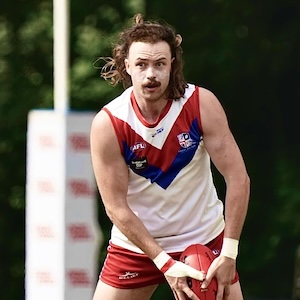The cardiovascular system refers to our heart and all the blood vessels in our body, which carry oxygen and nutrients to and from tissues and organ systems. Deep cardiovascular nourishment is synonymous with energy, essential for an active life, but it supports every bodily function, helping us to recover from, and adapt to, exercise training. Within sports nutrition, cardiovascular nourishment mostly revolves around the supply of energy substrates (macronutrients), alongside the transport of oxygen from the lungs. But, is that all this system really needs?
In this podcast, host Ian Craig asks postgraduate sports nutrition researcher, Joseph Lillis, about the way he thinks about cardiovascular nourishment. Joe’s passion area of research is the polyphenol power of plants; the key ingredients within well researched fruits and vegetables that do a lot more than simply provide ‘fuel’ to the body. They talk about cherries, blackcurrants, blueberries, pomegranates, and olives! Additionally, micro-nutrition, including compounds such as B-vitamins and Coenzyme Q10, are discussed within their vital roles in cardiovascular nourishment and energy provision. And the antioxidant debate in sport is also addressed: should we or should we not supplement an athlete with antioxidant nutrients and plant compounds close to exercise? Does it help or hinder our progression? Tune in to find out!
About Joe

Joseph Lillis is a PhD scholar at CCSES (Cambridge Centre for Sport and Exercise Sciences at Anglia Ruskin University), who within his doctoral research is collaborating with Fattoria la Viallas biodynamic farm and wine estate in Tuscany, Italy. He has a scientific interest in the naturally sourced phenolic compounds found in food and their potential benefits to health, exercise performance and increasing individuals’ ability to exercise. Building upon previous research into oxidative stress, aerobic exercise and acute recovery, within his PhD, Joe is examining the impact of a hydroxytyrosol rich phytocomplex (OliPhenolia®) on inflammatory mediators and functional mobility in an adult population. Understanding the efficacy of olive-derived phenolics, as well as the effective role that polyphenols could provide in an exercise setting, may inform future nutritional strategies pertinent to exercise training and recovery.
Outside of his research, Joe is an international Australian Rules footballer. Needless to say, he implements some of the nutrients discussed in the podcast during training and tournaments.
Connect with Joe on LinkedIn
Relevant research links and resources for this podcast
Below are a list of research articles and areas of academic enquiry within the field of polyphenols in sport and exercise, mentioned by Joe and Ian during their interview:
Classification of polyphenols
Classification and antioxidant assays of polyphenols: a review – Lang et al., 2024
Antioxidant properties of polyphenols in a health and disease context
Plant polyphenols as dietary antioxidants in human health and disease – Pandey and Rizvi, 2009
Effect of food processing on polyphenol content of food
Ian’s undergraduate thesis, showing velocity at VO2max to be a good predictive measure for endurance performance
Research on the effect of tart cherry juice on recovery from exercise
Effect of quercetin supplementation on mitochondrial biogenesis
Effects of quercetin and EGCG on mitochondrial biogenesis and immunity – Nieman et al., 2009
A really good review of polyphenol supplementation in sport
A good discussion of balance and seesaw analogy in the antioxidant debate
Redox mechanism of reactive oxygen species in exercise – He et al., 2016
Coenzyme Q10 and its role in the mitochondrial electron transport chain
Coenzyme Q10 analogues: Benefits and challenges for therapeutics – Suárez-Rivero et al., 2021
The research of Joe and Prof Justin Roberts on olive fruit water from Fattoria La Villa biodynamic farm in Italy








